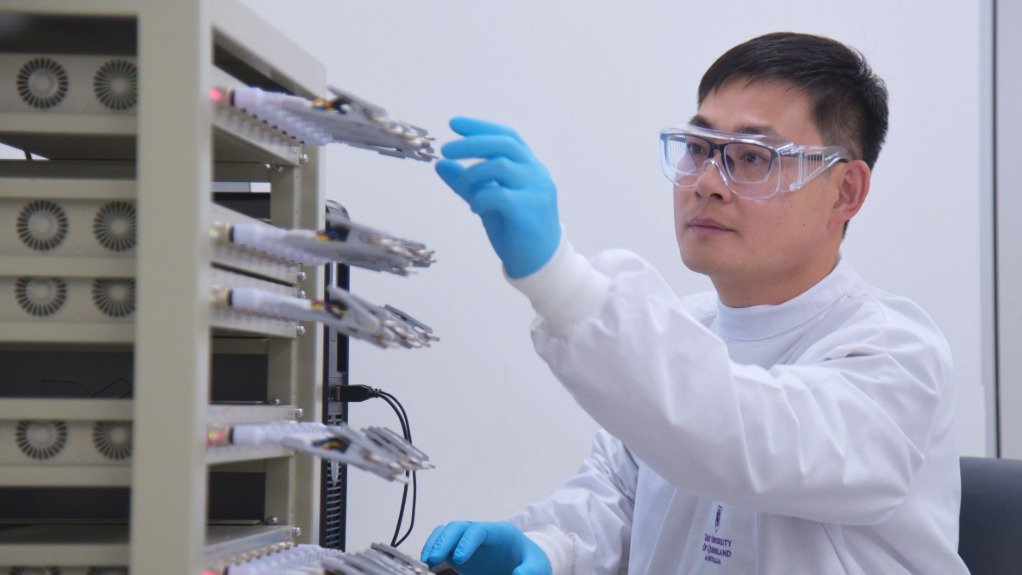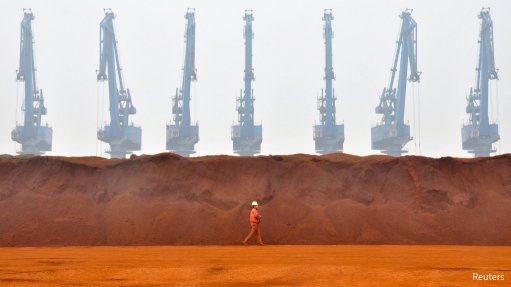Chemical capture tech makes for better batteries


CHENG ZHANG The polymer chemist is the man behind the development of the technology that can remove harmful ‘forever chemicals’ from water
Australian tertiary institution the University of Queensland (UQ) announced earlier this month that technology it has developed can remove harmful ‘forever chemicals’ from water so that they can be used in renewable batteries.
Researchers at UQ’s Australian Institute for Bioengineering and Nanotechnology have made a filter which quickly and cleanly captures per- and polyfluoroalkyl substances (PFAS).
The filter contains a patented sorbent solution that uses an ion-exchange technique to isolate and remove the PFAS particles as the water passes through it.
Polymer chemist Dr Cheng Zhang said fluorine-based materials can be harvested from the filter and he is working on using them to improve clean energy technology.
“People are increasingly aware of the risks that PFAS poses to human health, and how long these chemicals persist in the natural environment,” Zhang said.
He adds that not only does the filter technology remove harmful particles from water, but those captured chemicals are also available to be repurposed to help decarbonise the planet.
“The increasing demand for high-performance rechargeable batteries means manufacturers are constantly searching for new materials that improve the energy density, safety and cycling stability of batteries,” he explained, adding that recycled PFAS has “excellent” properties for this purpose.
Having successfully tested a prototype of the PFAS filter in a laboratory, Zhang and UQ Australian Centre for Water and Environmental Biotechnology research deputy director Professor Jianhua Guo will soon start pilot testing in Brisbane and the US with A$1-million backing from government-funded research and funding facilitator the Advance Queensland Industry Research Projects Programme.
Testing is being planned for a range of sites including the Luggage Point sewage treatment plant in Queensland, alongside water management company GHD, project management firm Octa Associates, and the Queensland Department of Environment, Science and Innovation.
In the second year of the project, an additional pilot site will be established to scale-up testing.
“These demonstrations will be pivotal to scaling-up our filter technology for use in industrial water infrastructure,” Zhang said, adding that if this testing goes as the researchers believe it will, they hope to reach commercial production within three years.
PFAS are synthetic chemicals used in consumer and industrial products because of their ability to resist heat, stains, grease and water but they persist in the environment and have been linked to a range of potential human health problems.
Article Enquiry
Email Article
Save Article
Feedback
To advertise email advertising@creamermedia.co.za or click here
Press Office
Announcements
What's On
Subscribe to improve your user experience...
Option 1 (equivalent of R125 a month):
Receive a weekly copy of Creamer Media's Engineering News & Mining Weekly magazine
(print copy for those in South Africa and e-magazine for those outside of South Africa)
Receive daily email newsletters
Access to full search results
Access archive of magazine back copies
Access to Projects in Progress
Access to ONE Research Report of your choice in PDF format
Option 2 (equivalent of R375 a month):
All benefits from Option 1
PLUS
Access to Creamer Media's Research Channel Africa for ALL Research Reports, in PDF format, on various industrial and mining sectors
including Electricity; Water; Energy Transition; Hydrogen; Roads, Rail and Ports; Coal; Gold; Platinum; Battery Metals; etc.
Already a subscriber?
Forgotten your password?
Receive weekly copy of Creamer Media's Engineering News & Mining Weekly magazine (print copy for those in South Africa and e-magazine for those outside of South Africa)
➕
Recieve daily email newsletters
➕
Access to full search results
➕
Access archive of magazine back copies
➕
Access to Projects in Progress
➕
Access to ONE Research Report of your choice in PDF format
RESEARCH CHANNEL AFRICA
R4500 (equivalent of R375 a month)
SUBSCRIBEAll benefits from Option 1
➕
Access to Creamer Media's Research Channel Africa for ALL Research Reports on various industrial and mining sectors, in PDF format, including on:
Electricity
➕
Water
➕
Energy Transition
➕
Hydrogen
➕
Roads, Rail and Ports
➕
Coal
➕
Gold
➕
Platinum
➕
Battery Metals
➕
etc.
Receive all benefits from Option 1 or Option 2 delivered to numerous people at your company
➕
Multiple User names and Passwords for simultaneous log-ins
➕
Intranet integration access to all in your organisation



















